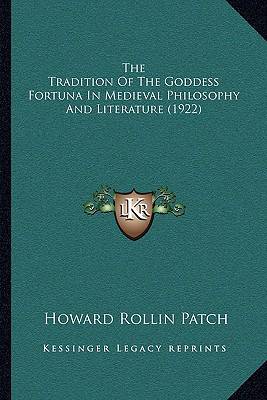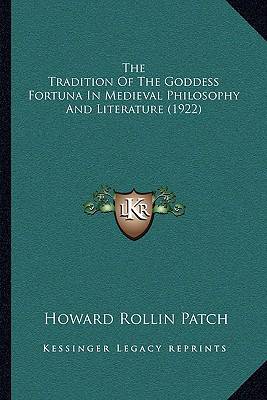
- Retrait gratuit dans votre magasin Club
- 7.000.000 titres dans notre catalogue
- Payer en toute sécurité
- Toujours un magasin près de chez vous
- Retrait gratuit dans votre magasin Club
- 7.000.0000 titres dans notre catalogue
- Payer en toute sécurité
- Toujours un magasin près de chez vous
The Tradition Of The Goddess Fortuna In Medieval Philosophy And Literature (1922)
Howard Rollin Patch
Livre broché | Anglais
27,45 €
+ 54 points
Format
Description
The book ""The Tradition Of The Goddess Fortuna In Medieval Philosophy And Literature (1922)"" by Howard Rollin Patch is a comprehensive study of the concept of the goddess Fortuna in medieval philosophy and literature. The author explores the origins and evolution of the goddess Fortuna, who was a popular figure in medieval times and was often associated with luck, fate, and fortune. The book examines the various philosophical and literary works of medieval thinkers and writers, including Boethius, Dante, Chaucer, and others, who used the figure of Fortuna to explore the nature of human existence and the role of fate in human life. The author provides a detailed analysis of the different interpretations of Fortuna, ranging from the classical Roman goddess of fortune to the Christian concept of divine providence.The book also delves into the historical and cultural context of the medieval period, providing insights into the social, political, and religious factors that shaped the understanding of Fortuna. It examines the influence of classical philosophy and literature on medieval thought, as well as the impact of Christian theology on the development of the concept of Fortuna.Overall, ""The Tradition Of The Goddess Fortuna In Medieval Philosophy And Literature"" is a valuable resource for scholars and students of medieval philosophy, literature, and culture, providing a comprehensive and insightful analysis of the role of Fortuna in medieval thought and literature.This scarce antiquarian book is a facsimile reprint of the old original and may contain some imperfections such as library marks and notations. Because we believe this work is culturally important, we have made it available as part of our commitment for protecting, preserving, and promoting the world's literature in affordable, high quality, modern editions, that are true to their original work.
Spécifications
Parties prenantes
- Auteur(s) :
- Editeur:
Contenu
- Nombre de pages :
- 64
- Langue:
- Anglais
Caractéristiques
- EAN:
- 9781166149208
- Date de parution :
- 10-09-10
- Format:
- Livre broché
- Format numérique:
- Trade paperback (VS)
- Dimensions :
- 152 mm x 229 mm
- Poids :
- 99 g

Les avis
Nous publions uniquement les avis qui respectent les conditions requises. Consultez nos conditions pour les avis.






